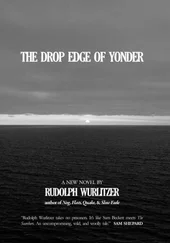W. MAUGHAM - The Razor's Edge
Здесь есть возможность читать онлайн «W. MAUGHAM - The Razor's Edge» весь текст электронной книги совершенно бесплатно (целиком полную версию без сокращений). В некоторых случаях можно слушать аудио, скачать через торрент в формате fb2 и присутствует краткое содержание. Жанр: Современная проза, на английском языке. Описание произведения, (предисловие) а так же отзывы посетителей доступны на портале библиотеки ЛибКат.
- Название:The Razor's Edge
- Автор:
- Жанр:
- Год:неизвестен
- ISBN:нет данных
- Рейтинг книги:3 / 5. Голосов: 1
-
Избранное:Добавить в избранное
- Отзывы:
-
Ваша оценка:
- 60
- 1
- 2
- 3
- 4
- 5
The Razor's Edge: краткое содержание, описание и аннотация
Предлагаем к чтению аннотацию, описание, краткое содержание или предисловие (зависит от того, что написал сам автор книги «The Razor's Edge»). Если вы не нашли необходимую информацию о книге — напишите в комментариях, мы постараемся отыскать её.
The Razor's Edge — читать онлайн бесплатно полную книгу (весь текст) целиком
Ниже представлен текст книги, разбитый по страницам. Система сохранения места последней прочитанной страницы, позволяет с удобством читать онлайн бесплатно книгу «The Razor's Edge», без необходимости каждый раз заново искать на чём Вы остановились. Поставьте закладку, и сможете в любой момент перейти на страницу, на которой закончили чтение.
Интервал:
Закладка:
'It's obvious that ruin is easier to bear in a luxurious apartment in a fashionable quarter, with a competent butler and an excellent cook free and for nothing, and when one can cover one's haggard bones with a dress by Chanel, isn't it?'
'Lanvin,' she giggled. 'I see you haven't changed much in ten years. I don't suppose you'll believe me, being a cynical brute, but I'm not sure if I'd have accepted Uncle Elliott's offer except for Gray and the children. On my twenty-eight hundred a year we could have managed perfectly well on the plantation and we'd have grown rice and rye and corn and kept pigs. After all I was born and raised on a farm in Illinois.'
'In a manner of speaking,' I smiled, knowing that in point of fact she had been born in an expensive clinic in New York.
At this point Gray came in. It is true that I had only seen him two or three times twelve years before, but I had seen a photograph of him with his bride (Elliott kept it in a splendid frame on his piano along with signed photographs of the King of Sweden, the Queen of Spain, and the Duc de Guise) and I had a fair recollection of him. I was taken aback. His hair had receded on the temples and there was a small bald patch on the crown, his face was puffy and red, and he had a double chin. He had put on a lot of weight during years of good living and hard drinking, and only his great height saved him from being grossly obese. But the thing I most noticed was the expression of his eyes. I remembered quite well the trusting, open frankness of their Irish blue, when the world was before him and he hadn't a care in the world; now I seemed to see in them a sort of puzzled dismay, and even if I hadn't known the facts I think I might have guessed that something had occurred to destroy his confidence in himself and in the ordered course of events. I felt a kind of diffidence in him, as though he had done wrong, though unwittingly, and were ashamed. It was piain that his nerve was shaken. He greeted me with pleasant cordiality and indeed seemed as glad to see me as if I were an old friend, but I had the impression that his rather noisy heartiness was a habit of manner that scarcely corresponded with his inner feeling.
Drinks were brought in and he mixed us a cocktail. He'd played a couple of rounds of golf and was satisfied with his game. He went into somewhat verbose detail over the difficulties he had surmounted over one of the holes and Isabel listened with an appearance of lively interest. After a few minutes, having made a date to take them to dine and see a play, I left.
I fell into the habit of dropping in to see Isabel three or four times a week in the afternoon after my day's work was over. She was generally alone at that hour and glad to have a gossip. The persons to whom Elliott had introduced her were much older than she and I discovered that she had few friends of her own generation. Mine were for the most part busy till dinner-time and I found it more agreeable to talk with Isabel than to go to my club and play bridge with rather grouchy Frenchmen who did not particularly welcome the intrusion of a stranger. Her charming way of treating me as if she and I were of an age made conversation easy and we joked and laughed and chaffed one another, chatting now about ourselves, now about our common acquaintances, now about books and pictures, so that the time passed very agreeably. One of the defects of my character is that I can never grow used to the plainness of people; however sweet a disposition a friend of mine may have, years of intimacy can never reconcile me to his bad teeth or lopsided nose: on the other hand I never cease to delight in his comeliness and after twenty years of familiarity I am still able to take pleasure in a well-shaped brow or the delicate line of a cheekbone. So I never came into Isabel's presence without feeling anew a little thrill of pleasure in the perfection of her oval face, in the creamy delicacy of her skin, and in the bright warmth of her hazel eyes. Then a very unexpected thing happened.
In all big cities there are self-contained groups that exist without intercommunication, small worlds within a greater world that lead their lives, their members dependent upon one another for companionship, as though they inhabited islands separated from each other by an unnavigable strait. Of no city, in my experience, is this more true than of Paris. There high society seldom admits oustsiders into its midst, the politicians live in their own corrupt circle, the bourgeoisie, great and small, frequent one another, writers congregate with writers (it is remarkable in Andre Gide's Journal to see with how few people he seems to have been intimate who did not follow his own calling), painters hobnob with painters and musicians with musicians. The same thing is true of London, but in a less marked degree; there birds of a feather flock much less together, and there are a dozen houses where at the same table you may meet a duchess, an actress, a painter, a member of Parliament, a lawyer, a dressmaker, and an author.
The events of my life have led me at one time and another to dwell transitorily in pretty well all the worlds of Paris, even (through Elliott) in the closed world of the Boulevard St Germain; but that which I liked best, better than the discreet circle that has its centre in what is now called the Avenue Foch, better than the cosmopolitan crew that patronize Larue's and the Cafe de Paris, better than the noisy sordid gaiety of Montmartre, is that section of which the artery is the Boulevard du Montpar-nasse. In my youth I spent a year in a tiny apartment near the Lion de Belfort, on the fifth floor, from which I had a spacious view of the cemetery. Montparnasse has still for me the tranquil air of a provincial town that was characteristic of it then. When I pass through the dingy narrow Rue d'Odessa I remember with a pang the shabby restaurant where we used to foregather to dine, painters and illustrators and sculptors, I, but for Arnold Bennett on occasion, the only writer, and sit late discussing excitedly, absurdly, angrily, painting and literature. It is still a pleasure to me to stroll down the boulevard and look at the young people who are as young as I was tben and invent stories for myself about them. When I have nothing better to do I take a taxi and go and sit in the old Cafe du Dome. It is no longer what it was then, the meeting place exclusively of Bohemia; the small tradesmen of the neighbourhood have taken to visiting it, and strangers from the other side of the Seine come to it in the hope of seeing a world that has ceased to exist. Students come to it still, of course, painters and writers, but most of them are foreigners; and when you sit there you hear around you as much Russian, Spanish, German, and English as French. But I have a notion that they are saying very much the same sort of things as we said forty years ago, only they speak of Picasso instead of Manet and of Andre Breton instead of Guillaume Apollinaire. My heart goes out to them.
When I had been in Paris about a fortnight I was sitting one evening at the Dome and since the terrace was crowded I had been forced to take a table in the front row. It was fine and warm. The plane trees were just bursting into leaf and there was in the air that sense of leisure, lightheartedness, and alacrity that was peculiar to Paris. I felt at peace with myself, but not lethargically, with exhilaration rather. Suddenly a man walking past me, stopped and with a grin that displayed a set of very white teeth said: 'Hello!' I looked at him blankly. He was tall and thin. He wore no hat and he had a mop of dark brown hair that badly needed cutting. His upper lip and his chin were concealed by a thick brown beard. His forehead and his neck were deeply tanned. He wore a frayed shirt, without a tie, a brown, threadbare coat, and a pair of shabby grey slacks. He looked a bum and to the best of my belief I had never seen him before. I put him down for one of those good-for-nothings who have gone to the devil in Paris and I expected him to pull a hard-luck story to wheedle a few francs out of me for a dinner and a bed. He stood in front of me, his hands in his pockets, showing his white teeth, with a look of amusement in his dark eyes.
Читать дальшеИнтервал:
Закладка:
Похожие книги на «The Razor's Edge»
Представляем Вашему вниманию похожие книги на «The Razor's Edge» списком для выбора. Мы отобрали схожую по названию и смыслу литературу в надежде предоставить читателям больше вариантов отыскать новые, интересные, ещё непрочитанные произведения.
Обсуждение, отзывы о книге «The Razor's Edge» и просто собственные мнения читателей. Оставьте ваши комментарии, напишите, что Вы думаете о произведении, его смысле или главных героях. Укажите что конкретно понравилось, а что нет, и почему Вы так считаете.









